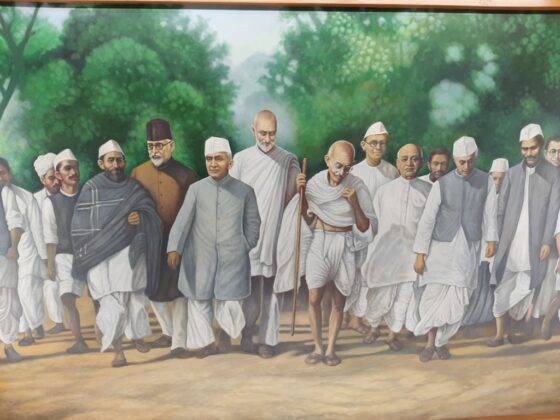
Book Name: Politics and Technology
Author: John Street
Publisher: The Guilford Press
Year of Publication: September 1992
Pages: 224
The eighties and the early nineties of the twentieth century witnessed seismic shifts like the globalisation of technology (viz. FAX machines) coupled with tumultuous political events like the Tiananmen protests, the Kuwait war etc. This highlighted the increasing significance of politics and technology, providing the backdrop for John Street’s work in the early nineties. However, Street departs from similar works by illustrating not merely how technology and politics are important but rather the diverse ways in which both are intricately enmeshed with each other.
The relationship between technology and politics constitutes the major theme underlying this work. While the exponents of autonomous technology believe in a notion of technological rationality, technological determinists argue that technology influences the division of labour, which ultimately shapes state functions. On the other end of the spectrum, political determinists argue that politics is prior to technology, contending that the state functions as a customer, regulator and underwriter of technology. However, he is careful not to wade into simplistic conclusions, arguing that there are wide differences in the way states perform these functions, depending on their respective political structures. He uses a diverse range of examples from the UK and the US to Russia across a range of technological sectors from nuclear to medical.
A second but interrelated theme in this book is the interrelationship between politics and science. This is illustrated using various aspects of science like the scientific method, the concerns, language and ideology of science, the interests of scientists etc. For instance, the feminist critique of science argues that science, in an ideological sense, is masculinist, marginalising the experiences of women. This interrelationship is linked to the larger normative question he seeks to address – how to ensure democratic control of technology. In order to answer this, he addresses the dual themes of the political implications of technology as well as the factors that confront us while making choices based on technology. He is not short of nuance here as well, arguing in detail how technology can result in myriad political manifestations in the respective spheres of dependence, choices, inequalities, experiences, side effects etc. The second theme of the choice of technology is conditional on institutional, evaluative and informational factors.
Setting the backdrop for the question of democratic use of technology, he examines the two prevalent contrasting political approaches to technology. Devoting a detailed section to green politics, he underlines how this brand of politics is antithetical to technology to such an extent that it has to be either renounced or radically reformed. The opposing strand of the technical fix seeks to ensure the subservience of technology to politics.
The theoretical contribution he makes to the technology-politics literature is an ‘eclectic’ third approach whereby he argues for an understanding of technological and political change in constant flux. Rather than providing definitive answers, he argues for a different approach, where he encourages the reader to question the very dichotomy between politics and technology. Using a powerful example of how supposedly technical notions like accuracy are political, he argues how technology in itself is shaped by politics. Similarly, in the context of mass communication in democracy, he argues that the democratisation of technology depends on the outcome, design and content of technology.
What makes ‘Politics and Technology’ remarkable is the sheer breadth of his analysis. This extends not only to the myriad illustrations of technology to substantiate his arguments but also to the nuances related to the technology-politics interface. The illustrations are wide-ranging and colourful, encompassing technology from mere hedges (to block protests) to the various formal dimensions of technology like medical, biotechnology, information technology, nuclear technology etc. His treatment of politics is no different – embracing a wide range of both philosophical positions from Bell to Heidegger as well as ideological standpoints from feminism to Marxism.
Those probing for definitive answers are likely to be disappointed. He addresses questions of politics and technology like a seasoned academic, exhausting the whole breadth of interactions between both while resisting simplistic conclusions. For instance, he resists the simplistic proclivity to link non-democratic regimes (e,g, Russia) to attitudes of secrecy on nuclear spillover, by highlighting contradictory attitudes of democratic regimes like the UK. He further grapples with notions like democracy, technology etc. which we take for granted, examining, unravelling and distilling nuanced, crystal-clear definitions in the process. This is evidenced by his detailed description of technology as having not merely material and intellectual dimensions, but a social aspect as well.
However, barring exceptions like Tiananmen and the Bhopal tragedy, the illustrations used are overwhelmingly skewed towards the Global North. Further, through a critical lens, one could argue that the endeavour to explain the politics of science while exhaustive and enriching in itself, doesn’t offer much in his emancipatory democratic project.
However, none of these glitches is significant enough to derail his larger project. In a society embarking on the Industrial Revolution 4.0 and the looming possibilities of “an AI war”, the fundamental normative project to democratise technology remains more relevant than ever. Even from a philosophical standpoint, his project remains relevant. The post-humanist strand of thought, which seeks to fuse the human-technology assemblage to conceptualise cyborgs and its relationship vis-à-vis the social-political realm, is based on very similar assumptions of dissolving the divide between the human and technology. Thus, it is safe to argue that ‘Politics and Technology’ remains one of the most relevant and exhaustive ‘gateway’ works for students probing the myriad and complex interconnections between politics, science and technology.
About the Author:
JOHN STREET is a professor of politics in the School of Politics, Philosophy, Language and Communication Studies. He is the author or co-author of seven books and some 80 articles. The third edition of his Media, Politics and Democracy was published in 2021. He is currently the Principal Investigator on an AHRC project: ‘Our Subversive Voice? The history and politics of the English protest song. The other members of the research team are Alan Finlayson (UEA), Oskar Cox Jensen (UEA), Angela McShane (Warwick University) and Matthew Worley (Reading University).
He supervises PhD students working on a range of topics, including the politics of music, new forms of political communication, and participatory democracy. He is a member of the Political Studies Association, the Subcultures Network, the International Association for the Study of Popular Music, and MeCCSA. He is a Fellow of the Academy of Social Sciences and a Fellow of the Higher Education Academy. He was until recently an Honorary Professorial Fellow at the University of Melbourne.










